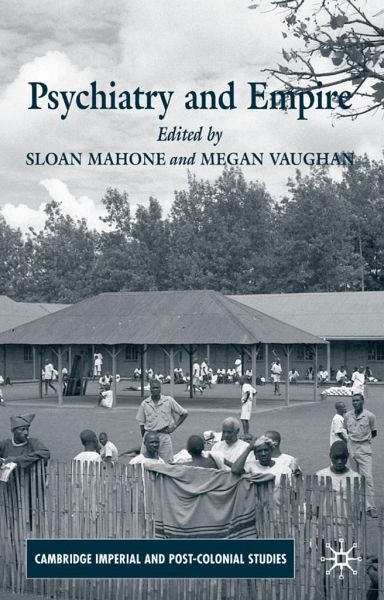
Psychiatry and Empire

PAYBACK Punkte
38 °P sammeln!
'Psychiatry and Empire' brings together scholars in the History of Medicine and Colonialism to explore questions of race, gender and power relations in former colonial states across Africa, Asia, the Caribbean and the Pacific. The volume advances our understanding of the rise of modern psychiatry as it collided with the psychology of colonial rule.














